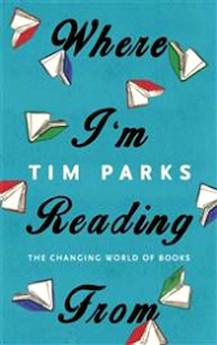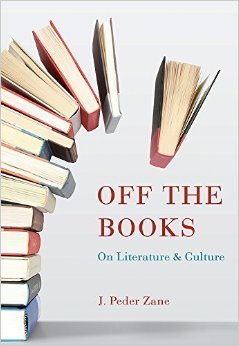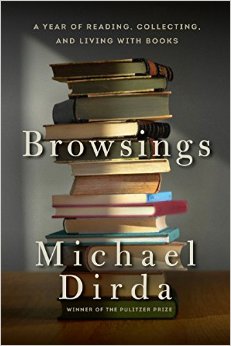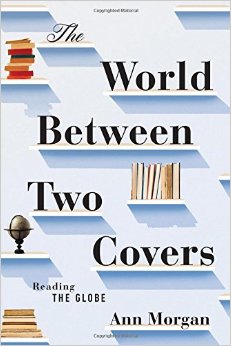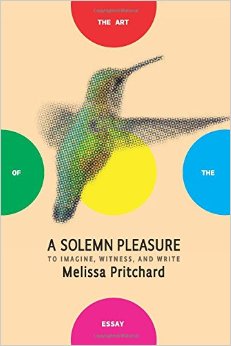The Best Books About Books
Reading About Reading is Sometimes Better Than Reading
I love books. More than anything else. More than food. Shit, more than cleanliness. More than friends (sorry, everyone). I’d rather read about a city than visit it. I’d rather read a person’s work than converse with them. And sometimes, rather than read a book, I’d actually rather read a book about books. Whether it’s a history of a particular book (like Maureen Corrigan’s wonderful So We Read On) or a particular publisher (like Boris Kachka’s fascinating Hothouse) or a particular writer’s work (like Claudia Roth Pierpont’s brilliant Roth Unbound) or a particular group of writers (like Christopher Bram’s illuminating Eminent Outlaws), I’m all over it. In fact, it’s probably my favorite category: books on books.
And I really love collections of essays and reviews from smart, incisive literary critics. John Leonard’s Reading for My Life is a treasured volume for me, as are Edmund Wilson’s Axel’s Castle, Janet Malcolm’s Forty-one False Starts, Hilton Als’s White Girls, James Wood’s The Fun Stuff, Christopher Hitchens’ Unacknowledged Legislation, John Updike’s Due Considerations, Joyce Carol Oates’s In Rough Country, Geoff Dyer’s Otherwise Known as the Human Condition, and Zadie Smith’s Changing My Mind. Sorry to list so many titles, but when else do I get to talk about this stuff? Lucky for me I’m a critic, and, even luckier, that I’ve been tasked with discussing five—count ‘em, five—books about books being published this year.
Where I’m Reading From, Tim Parks
I want to begin with Tim Parks’s Where I’m Reading From: The Changing World of Books, because it is so, so good. It’s a collection of essays revolving around the book world. Parks asks deceptively simple questions like “Why finish books?” and “What’s wrong with the Nobel?” and “Does copyright matter?” and answers them in thoughtful, informative prose, condensing complicated issues to succinct sentences. Here he is on the Nobel Prize for Literature:
Let’s pause for a moment, here, and imagine our Swedish professors, called to uphold the purity of the Swedish language, as they compare a poet from Indonesia, perhaps translated into English, a novelist from Cameroon, perhaps only available in French, and another who writes in Afrikaans but is published in German and Dutch, and then a towering celebrity like Philip Roth, who they could of course read in English, but might equally feel tempted, if only out of a sense of exhaustion, to look at it in Swedish.
An acclaimed translator and professor of translation in Milan, Parks is especially good on the difficulties of retaining nuances from one language to another. In D.H. Lawrence’s Women in Love, for instance, the following lines appear: “They both laughed, looking at each other. In their hearts they were frightened.” Parks finds, in an Italian translation, the word but inserted between the two sentences. “It appears to be received wisdom,” Park writes, “that one doesn’t laugh if one is afraid… Lawrence on the other hand suggests that nothing is more common than laughing and being afraid; one laughs because afraid, in order to deny fear.” Despite the curmudgeonly tone Parks sometimes takes, Where I’m Reading From is a joy to read, a wonderful book for anyone deeply engaged in what it means to read and to write.
Off the Books, J. Peder Zane
Next up is J. Peder Zane’s Off the Books, which collects 13 years of his columns and reviews at Raleigh’s News & Observer. Zane is an old-fashioned reviewer, so most of the 130 essays here are precisely the same length. His prose is straightforward and direct, and his criticism sharp and acute. Take, for instance, his assessment of Haruki Murakami way back in 2000, before he’d become one of the most recognizable writers in the world and a perpetual contender for the Nobel Prize: “No other contemporary writer has impressed me more than Haruki Murakami.” Or his view of Don DeLillo (a view I happened to agree with): “Don DeLillo is one of the most acclaimed writers of our time. He is also a second-rate novelist.” And what a joy it was for me to find that Zane also adored Thomas Pynchon’s unjustly dismissed Against the Day, which Zane calls “magnificent” and “riotous.” The section on Southern Writing Lives, featuring a long, fantastic essay on Faulkner, is especially good. There are also thoughtful pieces on Eudora Welty and Ralph Ellison and Robert Penn Warren, as well as wider-ranging essays on culture (some of which, like a couple of the post-9/11 pieces, haven’t aged particularly well). But what makes Off the Books so enjoyable is Zane’s unimpeachable passion for literature, for ideas, and for honestly endeavoring into both.
Browsings, Michael Dirda
No literary year is complete without a volume from the astonishingly prolific Michael Dirda, the longtime columnist for The Washington Post, and this August he offers Browsings, a collection of weekly pieces he did for The American Scholar. These short essays find Dirda in a lighter, more personal mode than he often is, since he was pretty much given carte blanche with his assignment. He celebrates the annual Used Book Sale at the Stone Ridge School of the Sacred Heart, wonders if David Foster Wallace fans are aware of his many contributions to The Oxford American Writer’s Thesaurus, and writes in praise of small presses like Ash-Tree Press and Night Shade Books. He also extols Dover Books, which he credits, via editor and vice president E.F. Bleiler, with “rediscovering and making available some of the greatest names in Victorian and Edwardian popular fiction.” Whether he’s recommending books as holiday gifts or discussing his love (like me!) for “books about books,” it’s fun to see Dirda having fun, and I was reminded of Bill Bryson’s I’m a Stranger Here Myself—a collection of wise and witty commentary from a gifted observer and a seasoned polymath.
The World Between Two Covers, Ann Morgan
In British author Ann Morgan’s The World Between Two Covers: Reading the Globe the author sets herself an ambitious goal: after a year of reading only women, she decides to spend a year “trying to read a book from every country in the world.” That’s 197 books (195 from UN countries, plus Taiwan and Kurdistan), and includes countries many Americans have never heard of let alone read a book by one of its citizens. Since simply listing the books and providing a short write-up of each would make for dull reading, Morgan instead narrates her journey in a mix of memoir and criticism, covering everything from translation issues to the paucity of world literature in your average bookstore. What makes her project especially valuable is the careful and considerate way Morgan approaches her task. One of the more disheartening chapters deals with “representations of the West in books around the world,” and, not surprisingly, the West doesn’t come out looking all that great. In the entry for Singapore, Suchen Christine Lim’s novel Fistful of Colours, Morgan finds a line accusing all Brits of being “racists to the bone.” Morgan considers this, in effortlessly readable prose typical of the whole book:
My brain began to perform a series of awkward manoeuvres. Unable to consign the statement to the witticism and irony drawer outright, I set about attempting a series of contortions whereby I could read the sentences in the context of the story and yet get round having to deal with their implications… At any rate, [the character] Suwen couldn’t seriously mean ‘all’ Brits were racist. Not the cultured ones, surely? Not people who read widely enough to access Lim’s book in the first place. Not… me.
This kind of defensive thinking is no doubt typical of Westerners tackling the literature of a world we know little about. Moreover, this might be the kind of sentiment that would discourage someone from continuing to read, but Morgan knows how important it is to see things from other perspectives, to dispel the myths of superiority that our cultures have instilled in us. Her project and her book are important, vital even, in an ever-expanding global community.
A Solemn Pleasure: To Imagine, Witness, and Write, Melissa Pritchard
I’m going to end with Melissa Pritchard’s A Solemn Pleasure: To Imagine, Witness, and Write. It’s both more meditative and confrontational than the others, containing as it does war journalism and transcendental declarations of faith. Pritchard, author of numerous novels and story collections, is a fine, delicate essayist, and much of her work confronts what it means to write, to partake in art as a calling. In “Spirit and Vision,” Pritchard scrutinizes Walt Whitman’s “audacious experiment with language,” 1855’s Leaves of Grass, and espouses “art as a form of active prayer.” She aligns herself with “William Blake, George Sand, Annie Dillard, Rilke, Keats, and many others.” Though I’m not personally prone to transcendental thinking, Pritchard’s writing is inspiring. My favorite of the book is “On Bibliomancy, Anthropodermic Bibliopegy, and the Eating Papers; or, Proust’s Porridge,” bibliomancy meaning “divination by means of a book opened at random to a verse or passage,” and anthropodermic bibliopegy “the practice of binding books in human skin,” and, though not mentioned in the title, bibliophagy, “a rare disorder wherein the afflicted person compulsively eats books.” It’s a fascinating essay from a worthy collection.
After reading all these books on books, I feel like I’ve engaged in some bibliophagy. I devoured these titles, and, if you’re at all like me, you will too. Though all deal directly with literature, their approaches vary greatly—from the old-fashioned and straightforward to the political and the spiritual. Novels and poems and essays are as eclectic as we are, and much like the way a book is made up of words and sentences, so too are we made up of the books we’ve read. They joins us like a curious stranger but stay like an old friend. They can cut, bruise, and disfigure us from the inside, but they can also alleviate, restore, and heal. I’ve dedicated my life to books, because I believe in them more than anything else, and books on books allow me fellowship with other defenders of the faith. Literature is the world’s shared, shaky wisdom, its soul. To paraphrase Whitman, I celebrate books, and sing books, and what I assume you shall assume, for every book belonging to me as good belongs to you.
Amen.


